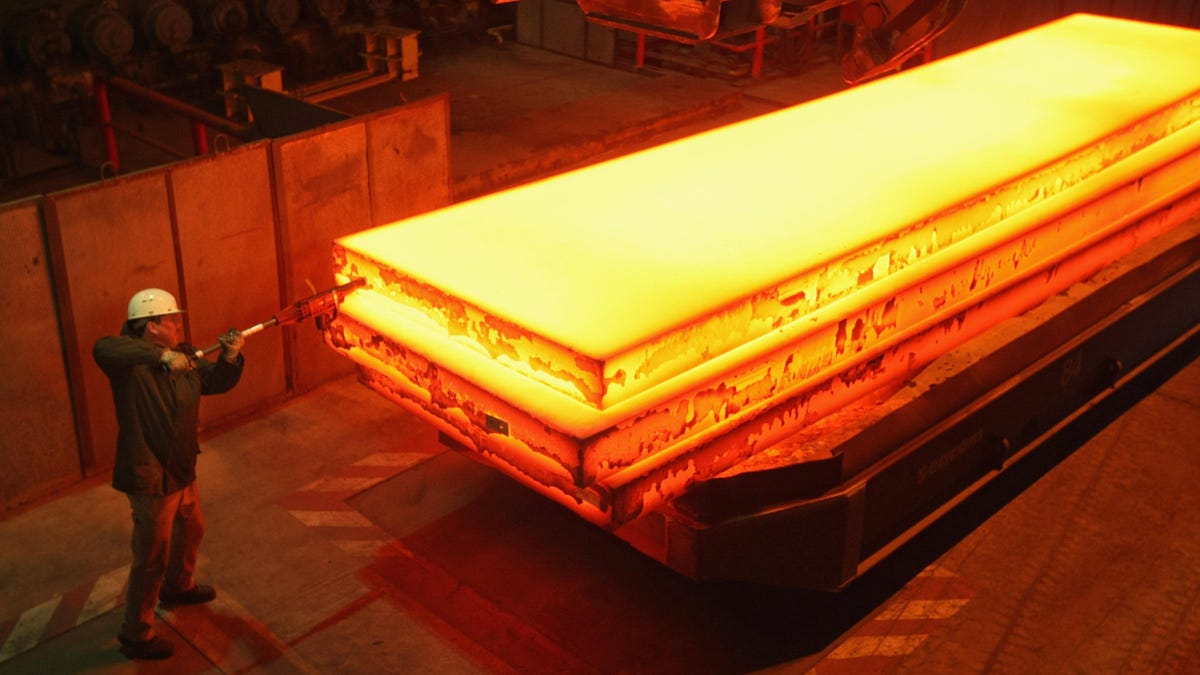
A Swedish company announced that it had delivered carbon-free stainless steel to a customer for the first time in its history. This is a significant step towards reducing carbon emissions in one of the most polluting industries on Earth.
Advertisement
HYBRIT was a joint venture between steel company SSAB and state-owned mining firm LKAB. On Wednesday, it said that it had delivered clean steel to Swedish carmaker Volvo. Although this was a test run, the firm intends to increase production to commercial scale by 2026.
Martin Lindqvist (president and CEO of SSAB) stated that the first steel made without fossil fuels is not only a major breakthrough for SSAB but also a proof of its ability to transition to a low-carbon future.
It is difficult to decarbonize steel. Most steel production depends on coal for its raw material and as a fuel. Since its inception five years ago, HYBRIT has been trying to develop clean steel production. It uses renewable power to generate hydrogen and then combines it with iron ore to make a porous metal called sponge iron. The process had been only tested on a laboratory scale. It was not yet ready for production. The venture announced that it had used the process successfully on a pilot scale in June. According to the Guardian, Volvo will experiment with the first batch of green steel and make prototype vehicles and parts.
This breakthrough is significant in a sea of new technologies that are being developed to combat the climate crisis. Steel is used to make many goods, including cars, ships, surgical materials and kitchen cutlery. The International Energy Agency estimates that the iron and steel industry is responsible for 8% of global energy demand and 7% for energy-related carbon dioxide emissions. If production were a country it would be the fourth-largest carbon polluter on Earth. It is sandwiched between India and the European Union. If HYBRIT can make steel without polluting, then other entities will be able to do so, too. This must happen quickly.
To reach the Paris Agreement goal of 1.5 degrees Celsius (2.7 degree Fahrenheit), it will be necessary to reduce emissions by more than 7% per year for the next decade. Already, the world is falling behind at this rate. It still has to end fossil fuel exploration and usage, but it could speed up green steel production beyond one company. This would help bring things back on track. It is a reminder of the importance of strong government policy and government support to accelerate the transition.
